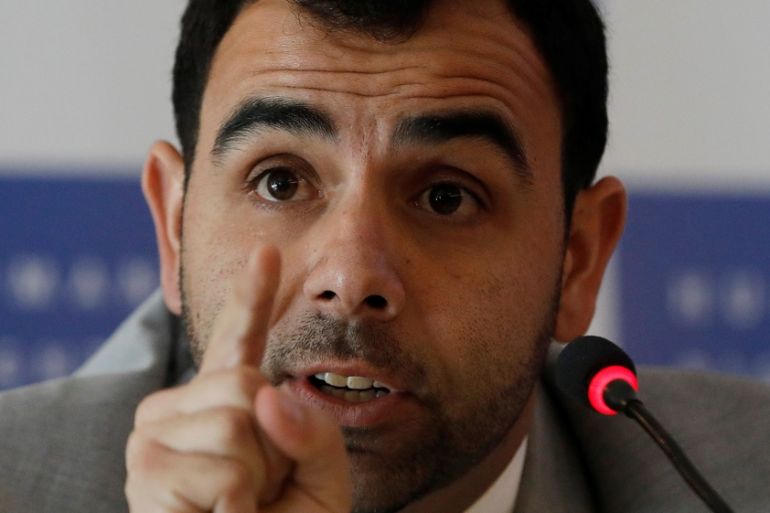‘Chilling message’: Israel court orders expulsion of HRW official
Israeli court cites Omar Shakir’s alleged support for boycotts of Israel, orders him to leave the country by May 1.

Human Rights Watch (HRW) says it will appeal to the Israeli Supreme Court after judges in Jerusalem upheld a government order to deport one of its staff members, citing his alleged ongoing support of boycotts of Israel.
The Jerusalem District Court on Tuesday rejected a petition by Omar Shakir, HRW’s local director, to remain in Israel and ordered him to leave the country by May 1.
Keep reading
list of 4 itemsMSF suspends work in Haiti emergency centre after armed group kills patient
‘It gave me a purpose’: Surf therapy transforms lives in South Africa
British-Ghanaian boxer Joshua Buatsi: ‘I can’t be the only one benefitting’
In 2017, the Israeli government enacted a law barring entry to any foreigner who “knowingly issues a public call for boycotting Israel”. Tuesday’s ruling was the first time the law was applied to someone already residing in the country.
Shakir, a US citizen, has worked as HRW’s Israel and Palestine director since October 2016.
Israel’s Interior Minister Arye Dery ordered Shakir’s deportation in May 2018, calling him a “boycott activist”.
The court said that Shakir “continues his actions publicly to advance a boycott against Israel, but it’s not on the stages at conferences or in university panels, rather through disseminating his calls to advance boycott primarily through his Twitter account and by other means”.
It cited as an example Shakir’s support on Twitter for Airbnb’s decision to remove postings from Israel’s settlements in the occupied West Bank, which are considered illegal under international law. The online home-sharing platform later backtracked on that decision.
In a video message posted online, Shakir called the court’s decision “shocking” and said its implications go “to the heart of the spaces for human rights today.”
HRW said the Israeli government’s decision in May last year to deport Shakir was based on a dossier it compiled on his activism dating to 2006, a decade before he began covering Israel and Palestine for the organisation.
עומאר שקיר, פעיל "יומן רייטס ווטש", לכאן חדשות על החלטת המחוזי בירושלים לגרשו: "החלטה מזעזעת, נעתור לבג"ץ. מסר מזעזע של בית המשפט. מי שבסכנה היא נשמתה של ישראל"@eran_singer pic.twitter.com/vvVCzEby2z
— כאן חדשות (@kann_news) April 16, 2019
In a statement after the court’s decision on Tuesday, HRW said neither it nor Shakir promote Israel boycotts, but call for companies to cease operations in illegal West Bank settlements because they “inherently benefit from and contribute to serious violations of international humanitarian law”.
The ruling was “new and dangerous interpretation” of the 2017 law, and it “threatens the ability of all Human Rights Watch staff members to access both Israel and the West Bank”, the US-based rights group said, adding that it would seek an injunction allowing Shakir to remain in the country until the appeal was heard.
“The decision sends the chilling message that those who criticise the involvement of businesses in serious abuses in Israeli settlements risk being barred from Israel and the Israeli-occupied West Bank,” said Tom Porteous, HRW’s deputy programme director.
Michael Sfard, Shakir’s lawyer, was quoted as saying by Israeli daily Haaretz that the court’s ruling “endangers the activities of all the international human rights organisations in Israel and in the occupied territories.
“In the decision to allow the deportation of a defender of human rights because of his activity in defence of the victims of human rights violations, the court has toed the line with a regime that seeks to silence criticism even at the cost of infringing on society’s most important liberties.”